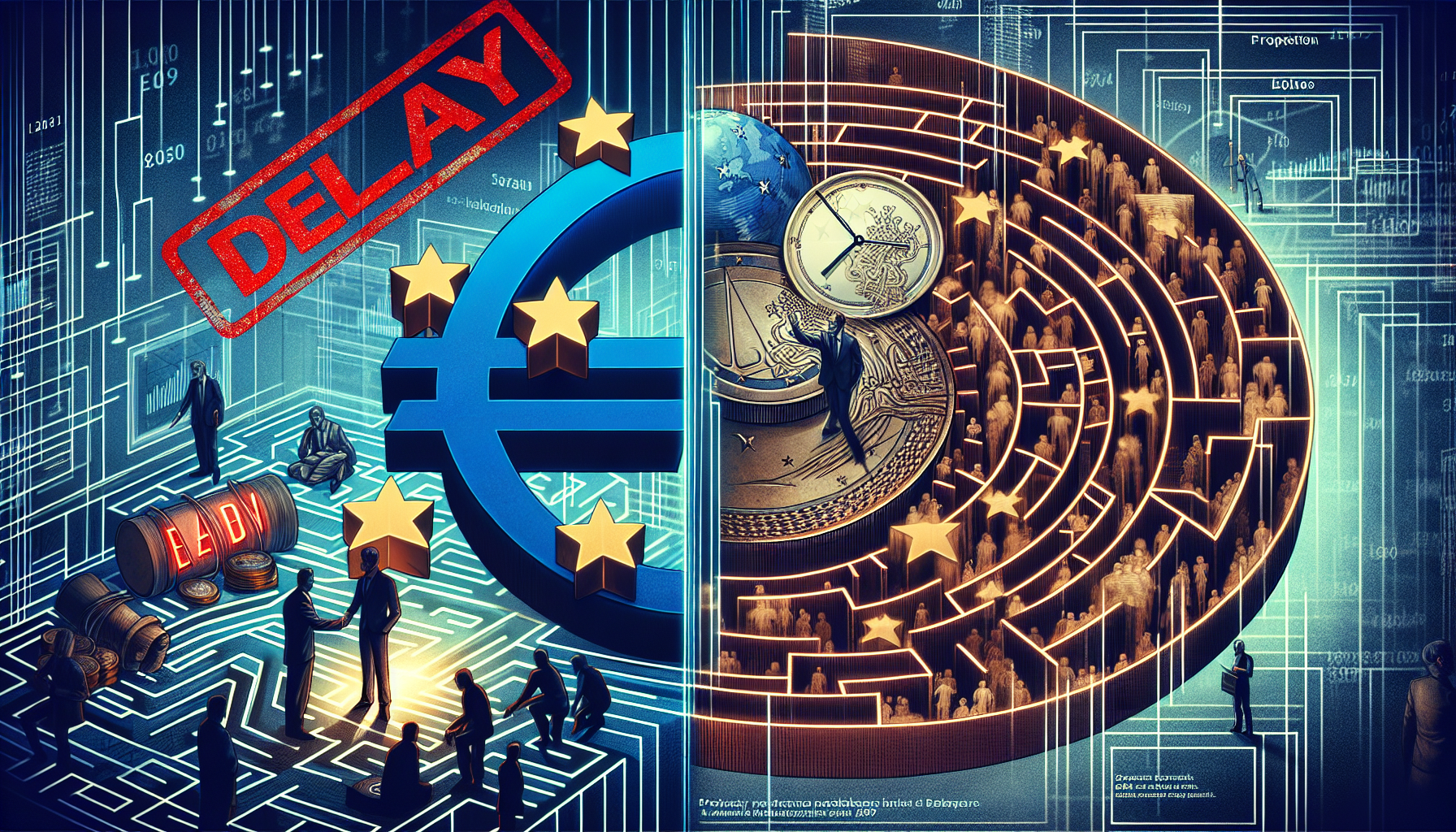
tl;dr
The European Central Bank confirms the digital euro launch is pushed to mid-2029 due to EU bureaucratic gridlock, political resistance, and privacy concerns. While technical work progresses, the project faces a gauntlet of approvals, comparisons to China's digital yuan, and debates over financial so...
The digital euro, a cornerstone of the European Union’s financial future, is inching closer to reality but still faces a labyrinth of bureaucratic hurdles. European Central Bank (ECB) Executive Board member Piero Cipollone confirmed at a recent event in Frankfurt that the digital euro’s launch is now projected for mid-2029—a delay that underscores the complexity of turning a visionary project into a tangible tool. “The middle of 2029 could be a fair assessment,” Cipollone said, highlighting the ECB’s ongoing negotiations with EU member states. Yet, this timeline reflects a pattern of setbacks, as the project has languished for years amid political resistance and practical concerns.
The European Parliament has emerged as the most significant roadblock. Its approval is required to advance the digital euro, and lawmakers have been slow to reach consensus. Cipollone noted that a “general approach” among member states is expected by year-end, with the Parliament likely to finalize its position by May 2026. This delay isn’t just about procedure—it’s a reflection of deep-seated skepticism. Critics, including some EU lawmakers, worry the digital euro could undermine privacy, erode trust in traditional banks, or become a costly experiment with little practical benefit.
Recent developments hint at a fragile compromise. EU ministers recently agreed on a roadmap that includes holding limits for the digital currency, a measure intended to balance innovation with risk management. Irish Finance Minister Paschal Donohoe emphasized that the ECB must seek input from the Council of Ministers before finalizing the project, ensuring broader political buy-in. Yet, this cautious approach also signals the project’s vulnerability to ideological divides.
The ECB, however, remains committed. A progress report from a European Parliament member is set for October 24, followed by a six-week window for amendments and months of further debate. The central bank’s timeline remains ambitious: transitioning from a preparation phase (ending October 2025) to a potential pilot program. But even as the ECB advances its technical work, the political theater continues.
The digital euro’s journey mirrors a broader global race. China’s digital yuan, launched in 2022, has faced sluggish adoption, with critics calling it a “costly fiat replica” rather than a groundbreaking innovation. Meanwhile, the U.S. has leaned into stablecoins, prompting EU officials to argue that a digital euro is essential to safeguard financial sovereignty. Yet, as Cipollone’s remarks make clear, the path to implementation is as much about navigating politics as it is about technology.
For now, the digital euro remains a symbol of Europe’s struggle to reconcile ambition with pragmatism. Five years after its official announcement in 2020, the project’s delayed launch raises questions about whether it will ever fulfill its promise—or if it will become another casualty of the EU’s bureaucratic inertia. As the October 2029 deadline looms, one thing is certain: the digital euro’s fate will shape not just Europe’s financial landscape, but the global conversation about the future of money.